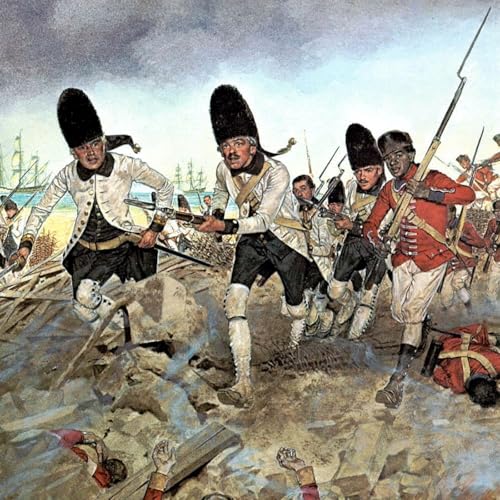"And for the support of this Declaration, with a firm reliance on the protection of divine Providence, we mutually pledge to each other our Lives, OUR FORTUNES, and our sacred Honor." Why did the signers of the Declaration of Independence have to pledge their fortunes (their money) to the revolutionary cause? How did unorthodox American ideas about money help win the Revolutionary War? And were the Founding Fathers, in fact, the first crypto bros? We explore these ideas in this episode about money, bills of credit, taxes and coinage in the 13 Colonies and the British Empire with economic historian Dr. Andrew Edwards. Topics include: -an explanation of money as a medium of exchange, a unit of account, and a store of value -a survey of the different forms of money that existed int he 1700s -the use of the novel payment system of BILLS OF CREDIT to pay for military expeditions due to the shortage of gold and silver in the Colonies -its use in the first invasion of French Canada in 1690 by Massachusetts -early British thinkers about money in the 1600s, including Cromwell's Treasurer of the Army, John Blackwell -the use of bills of credit and taxes to pay for Colonial infrastructure and other collective projects -the creation of the Continental Dollar -the fragility of the new American financial system, given that the British Army both captured entire regions, eliminating all the tax revenue there, and also printed counterfeit Continentals to undermine faith in the system -the collapse of the Continental Dollar and the US financial system while the war was still raging -the creation in 1781-82 of the Bank of North America in Philadelphia, which mimicked the Bank of England -the eventual triumph of the English banking model despite the triumph of the Colonies in the War of Independence
続きを読む
一部表示
 58 分
58 分 57 分
57 分 49 分
49 分 1 時間 9 分
1 時間 9 分 1 時間 17 分
1 時間 17 分 2025/11/1351 分
2025/11/1351 分 1 時間 6 分
1 時間 6 分 50 分
50 分
